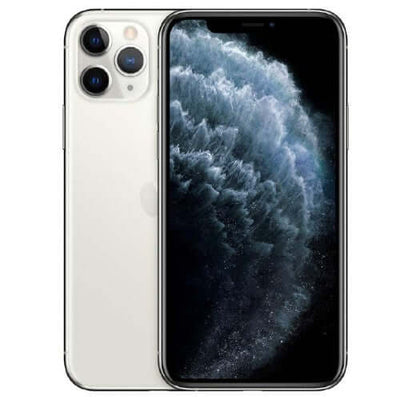Introduction
In the United Arab Emirates, a nation renowned for its rapid development and eagerness to adopt new technologies, the advancements in smartphone technology have been particularly remarkable. This progress mirrors global trends but also showcases unique regional characteristics. The impact of this technological evolution on the UAE is profound, transforming the way residents communicate, conduct business, and manage their everyday activities.
The UAE's embrace of smartphone technology is part of a larger vision to establish itself as a leading global hub for innovation and technology. The government has actively encouraged the use of digital technologies in various sectors, including education, healthcare, and transportation, making smartphones an integral tool in these efforts. This has led to a significant increase in smartphone penetration in the country, with a wide range of options available to consumers, from high-end models to more affordable ones.
One of the most noticeable impacts of smartphone technology in the UAE is in the realm of communication. Traditional methods of communication have been largely supplanted by instant messaging apps and social media platforms, which are now the primary means of staying in touch with family and friends, both within the UAE and abroad. This shift has not only made communication more convenient but also more interactive and engaging, with the ability to share photos, videos, and other multimedia content instantly.
In the business sector, smartphones have revolutionized the way companies operate. Mobile apps and cloud-based services have enabled greater flexibility and efficiency, allowing employees to work remotely and stay connected to their office networks from anywhere. This has been particularly beneficial for the UAE's growing number of entrepreneurs and small business owners, who can now manage their operations on-the-go without the need for expensive office setups.
The daily life of residents in the UAE has also been significantly impacted by smartphone technology. From online shopping and food delivery to navigation and transport services, smartphones have brought convenience and efficiency to many aspects of everyday life. Furthermore, the government's push for smart city initiatives has led to the development of various apps and services designed to improve the quality of life for residents, such as apps for paying bills, booking medical appointments, and accessing public services.
Overall, the advancement of smartphone technology in the UAE reflects the country's commitment to innovation and its vision for a digital future. This progress has not only enhanced the lifestyle of its residents but has also positioned the UAE as a leader in the global technology landscape.
Early Beginnings: The First Mobile Phones
Back in the early 1990s, the concept of mobile phones was still in its infancy. At that time, these devices were considered a luxury item, often associated with business professionals and the elite. These early mobile phones were quite bulky, a far cry from the sleek and versatile devices we see today. Their primary function was making and receiving calls, with very few additional features.
In the United Arab Emirates, a country known for its vision and rapid adaptation to technological advancements, these novel gadgets were quickly adopted. Despite their size and limited capabilities, mobile phones represented a significant leap forward in communication technology. The UAE, always keen on integrating the latest global innovations, saw the potential in these devices.
The adoption of mobile phones in the UAE during this period mirrored the country's broader approach to technology and progress. The government and the people of the UAE have always been enthusiastic about embracing new technologies that can enhance their way of life and drive economic growth. This attitude was evident in how quickly they incorporated mobile phones into daily life, despite the initial high costs and limited functionality of these early models.
It's fascinating to think about how these early mobile phones, which were primarily used for basic voice communication, laid the groundwork for the revolutionary changes in personal and business communication that we see today. The UAE's early adoption of mobile phones is a testament to its foresight and commitment to staying at the forefront of technological innovation. This willingness to embrace new technologies has played a significant role in the country's rapid development and its status as a modern, connected society.
The Rise of Smartphones
Remember the excitement when the first smartphones hit the market in the early 2000s? It was a time of significant change in the world of mobile technology. Before this era, we were using mobile phones that were primarily meant for calling and texting. But then came the smartphones, a game-changer that reshaped our daily lives.
These new devices weren't just phones; they were mini-computers in our pockets. For the first time, we could access the internet, send emails, play games, listen to music, and watch videos, all on a single device. It was like having a magic box that could do almost everything.
In the UAE, the impact of smartphones was particularly noticeable. The country has always been at the forefront of adopting new technologies, and the smartphone revolution was no exception. People were quick to embrace these new gadgets, and it wasn't long before you saw everyone, from young kids to older adults, swiping on their screens.
This adoption spurred significant growth in the telecommunications sector in the UAE. Mobile service providers had to upgrade their networks to handle the increased data usage, and there was a surge in the development of apps tailored to the local population's needs. It also opened up new business opportunities, from mobile commerce to app development
But perhaps the most exciting part of the smartphone revolution was how it connected us in ways we couldn't have imagined. Suddenly, we were able to keep in touch with friends and family around the world, share our experiences in real-time, and access a wealth of information at our fingertips. It's a transformation that continues to evolve, shaping our communication, entertainment, and daily life activities.
Technological Innovations Transforming Our Lives
• The Emergence of Touchscreen Technology:
This groundbreaking advancement has completely altered the way we interact with our electronic devices. Its intuitive design and user-friendly interface have made technology more accessible and enjoyable for people of all ages.
• The Rise of 4G and 5G Networks:
These technologies have been game-changers in the realm of internet connectivity. They have brought about significantly faster internet speeds, revolutionizing the smartphone experience and enabling seamless streaming, browsing, and downloading like never before.
• Advancements in Camera Technology:
Today's smartphones are equipped with cameras that rival professional-grade photography equipment. This leap in camera technology has made high-quality photography accessible to everyone, turning ordinary users into skilled photographers with the click of a button.
• The Introduction of Mobile Payment Systems:
These systems have seen a surge in popularity, especially in regions like the UAE. They have ushered in an era of cashless transactions, making payments more convenient, secure, and swift. This innovation is a significant step towards a digital economy.
The Role of the UAE in Smartphone Evolution
The United Arab Emirates has played a more dynamic role in the evolution of smartphone technology than just being a mere consumer. This forward-thinking nation has actively contributed to the development and advancement of this technology, influencing the global smartphone landscape significantly.
One of the key ways the UAE has been instrumental in this field is by hosting various technology expos and conferences. These events have served as crucial platforms for the launch and showcase of new smartphone technologies and innovations. They attract tech giants and startups from around the world, fostering a collaborative environment where ideas are exchanged, and future trends are shaped.
Moreover, the UAE has positioned itself as an ideal testbed for cutting-edge technologies, including 5G. Its robust infrastructure, high consumer purchasing power, and government support for tech initiatives make it a perfect ground for testing new technologies before they are rolled out globally. The implementation of 5G in the UAE is not just about faster internet speeds; it's about setting a benchmark for what's possible in the realm of mobile communications and smart city applications.
The country's involvement in smartphone technology also extends to partnerships and collaborations with leading tech companies. By doing so, the UAE ensures that it stays at the forefront of technological advancements. These collaborations often result in the early adoption of new technologies in the UAE market, further cementing its position as a leader in the tech world.
In essence, the UAE's role in the evolution of smartphone technology is multifaceted. It is not just a consumer but also a contributor, influencer, and innovator. The nation's commitment to embracing and advancing technology is evident in its proactive approach to hosting significant tech events, serving as a testing ground for new technologies, and collaborating with global tech leaders. This approach has undoubtedly helped shape the global smartphone industry and will continue to do so in the future.
Current Trends and Future Prospects
In the ever-evolving landscape of technology, certain trends have become particularly prominent, especially in the realm of smartphones. The current focus is intensely set on integrating Artificial Intelligence (AI), bolstering cybersecurity measures, and developing more sustainable and eco-friendly devices. The United Arab Emirates, true to its reputation as a hub of innovation and technological advancement, is at the forefront of these developments, consistently adopting and integrating these cutting-edge technologies into its infrastructure.
The integration of AI into smartphones is revolutionizing the way we interact with our devices. AI capabilities in phones are enhancing user experience through personalized assistance, advanced camera functionalities, and more efficient power management. The UAE, with its penchant for embracing new technologies, is seeing a significant adoption of AI-powered smartphones. This trend is not just a fad but a glimpse into the future of personal electronics, where devices understand and anticipate user needs.
Cybersecurity is another area receiving heightened attention. As smartphones become central to our personal and professional lives, the need to protect sensitive information has never been more crucial. The UAE is taking proactive steps in this direction, implementing robust cybersecurity measures to safeguard against data breaches and cyber threats. The country's commitment to cybersecurity is evident in its policies and the initiatives it undertakes to educate and protect its citizens in the digital space.
Sustainability in smartphone manufacturing and usage is becoming a priority, and the UAE is not lagging in this area. With a growing global consciousness about environmental impact, there is a push towards developing devices that are not only energy-efficient but also made from recycled or sustainable materials. The UAE's approach to sustainability is holistic, looking at not just the end product but also the process of manufacturing, aiming to minimize the ecological footprint.
Looking ahead, the future prospects in the field of smartphone technology are boundless. The UAE, with its strategic investments and open embrace of new technologies, is well-positioned to not just keep pace with these developments but to lead them. The focus on AI, cybersecurity, and sustainability is likely to drive innovation in exciting new directions, with the UAE playing a pivotal role in shaping the future of smartphone technology.
Conclusion
The journey of smartphone technology in the United Arab Emirates is a remarkable narrative that speaks volumes about the nation's dedication to technological progress and innovation. This journey, characterized by rapid adoption and integration of cutting-edge technologies, has positioned the UAE not just as a consumer of global innovations, but as a significant contributor and influencer in the tech world.
As we look towards the future, the prospects of smartphone technology in the UAE are indeed bright and promising. The nation's strategic approach to technology, combined with its robust infrastructure and forward-thinking policies, sets the stage for continued leadership in this domain. The UAE's commitment is evident in its eagerness to explore and invest in emerging technologies, such as AI, enhanced cybersecurity, and sustainable practices in smartphone manufacturing and usage.
Furthermore, the UAE's role in the global technological arena is expected to grow even stronger. With its penchant for hosting influential tech expos, serving as a testing ground for new innovations, and fostering partnerships with tech giants, the UAE is poised to remain a key player in shaping the future trajectory of smartphone technology.
In conclusion, the evolution of smartphone technology in the UAE is not just a success story of the past and present but a beacon for future innovations. The nation's journey in this field is a clear reflection of its ambition to be at the forefront of technological advancement, making a significant impact on the global stage. The future of smartphone technology in the UAE is not just about new devices and features; it's about setting new standards and opening new possibilities in the world of technology.
FAQs
1. When did smartphones first gain popularity in the UAE?
Smartphones began gaining popularity in the UAE during the early 2000s.
2. What are some key technological advancements in smartphones witnessed in the UAE?
Notable advancements include the introduction of touchscreen technology, the deployment of 4G and 5G networks, significant improvements in camera features, and the integration of mobile payment systems.
3. How has the UAE contributed to the global evolution of smartphone technology?
The UAE has played a pivotal role by hosting global technology events, serving as a testing ground for new technologies, and making substantial investments in telecommunications infrastructure.
4. What future trends are expected in smartphone technology in the UAE?
Upcoming trends include further integration of AI, enhanced cybersecurity measures, and the development of sustainable technology.
5. How is AI integration impacting smartphone usage in the UAE?
AI integration is enhancing user experience with personalized features, improving camera functionalities, and optimizing device performance.
6. What role does the UAE play in the development of 5G technology?
The UAE is a leader in the implementation of 5G technology, offering one of the earliest and most extensive 5G networks globally.
7. Are there any UAE-based companies leading in smartphone technology?
While there are no major UAE-based smartphone manufacturers, several local companies are contributing to the ecosystem through apps, software development, and tech services.
8. How does the UAE's approach to cybersecurity in smartphones stand out?
The UAE emphasizes robust cybersecurity, implementing stringent measures and policies to protect user data and privacy on mobile devices.
9. What initiatives is the UAE taking towards sustainable smartphone technology?
The UAE is focusing on promoting the use of eco-friendly materials in devices, encouraging recycling, and supporting the development of energy-efficient technologies.
10. How does the consumer market in the UAE influence global smartphone trends?
The UAE's diverse and tech-savvy consumer base, known for its appetite for high-end and innovative gadgets, often influences global manufacturers' decisions in technology development and product launches.



















